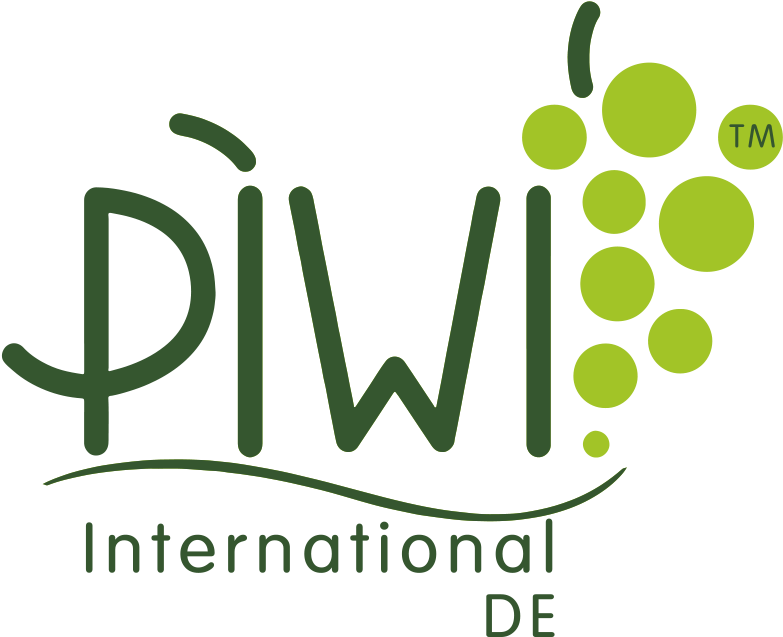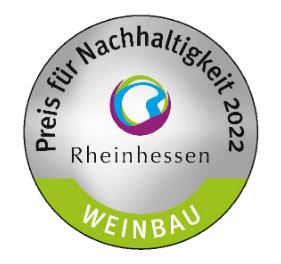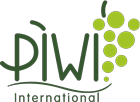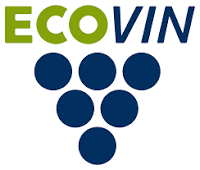The PIWI Germany association
Executive Board
- Andreas Dilger, 1st Chairman, Freiburg, Baden, www.weingut-andreas-dilger.de
- Dr. Cornelia Wobar, 2nd Chairwoman, Großräschen, Brandenburg, www.weinbauwobar.de
- Dr. Wolfgang Patzwahl, Treasurer, Sulzfeld am Main, Bavaria www.btw.patzwahl.de
- Christian Seybold, Lauffen, Württemberg, www.weingut-seybold.de
- Andreas Stutz, Heilbronn, Württemberg, www.weingut-stutz.de
- Achim Dettweiler, Wintersheim, Rheinhessen, www.theos-weinundgut.de
- Günter Schnaus, Schwabenheim, Rheinhessen, guenter.schnaus (a) piwi-deutschland.de
- Anja Sistonen, Selters, Rhineland Palatinate,
headquarters of the association PIWI Germany registered association
Andreas Dilger, Urachstrasse 3, 79102 Freiburg i.Br.
E-mail: kontakt@piwi-deutschland.de
Articles of Association

Become a Member
Membership application download, fill in, print, sign and send kontakt@piwi-deutschland.de send
Important appointments:
-
Cooperation with wein.plus - benefit as a member of PIWI Germany.
There is a cooperation between PIWI International and wein.plus that aims to promote the association and its members on wein.plus. In this webinar, which lasts no more than 10 minutes, Utz Graafmann will show how you as a winery can benefit from this.
To registration - PIWI Germany General Meeting Online 15.4.2024 18:00
Only for members of PIWI Deutschland eV. Request access at kontakt@piwi-deutschland.de! - Members’ trip to Rattey Castle and Poland – 10 – 12 August 2024
Registration for the program is via: office@piwi-international.org -
You can find all other dates from PIWI DE and PIWI International in our Calendar
Our partners:
Latest News
piwi-boerse.de – the fastest way to new grape varieties!
The current sustainability debate has given the PIWI topic new impetus and increased demand for new varieties.
DLR-Rheinpfalz, together with the German Winegrowers' Association and PIWI Germany, developed the "piwi-boerse.de" platform as an experiment so that you, as a winegrower, can quickly and easily gain your own experience in growing new grape varieties (PIWIs). .
With the exchange you have the opportunity to buy (or sell) small quantities of wine grapes or must from new grape varieties and to try out and experiment with vinification.
The PIWI Exchange is initially scheduled for one year.
Contact:
DLR Rheinpfalz
dr Charlotte Hardt
Charlotte.Hardt@dlr.rlp.de
Approval of new PIWI varieties in Palatinate
In the Official Journal of the EU C 272 of July 15, 2022, the EC notification 2022/C 2272/05 was published on newly approved varieties for quality wine and wine with a predicate in the Palatinate wine-growing region. The maximum yield per hectare is set at 105 hectolitres. Of the more than 30 new varieties, almost ½ belong to PIWI varieties. The white PIWI varieties are Bronner, Cabernet blanc, Hibernal, Muscaris, Sauvitage, Souvignier gris and Villaris. The blue PIWI varieties are Baron, Cabernet Cantor, Cabertin, Calandro, Pinotin, Piroso and Reberger. In addition to the German varieties, there are also some Swiss varieties.
Previously it was already possible to choose from two dozen PIWI varieties such as Johanniter, Juwel, Orion, Phoenix, Prinzipal, Saphira, Sirius, Solaris, Staufer, Accent, Allegro, Bolero, Cabernet Carbon, Cabernet Carol, Cabernet Cortis, Prior, Regent and Rondo, i.e. exclusively from Germany, to win wine with a geographical designation of origin (PDO).
Official Journal of the EU C 272 of July 15, 2022, Jiří Sedlo
Approval of new PIWI varieties in Rheinhessen
In the Official Journal of the EU C 265 of July 11, 2022, the EC notification 2022/C 265/08 was published on newly approved varieties for quality wine and wine with a predicate in the Rheinhessen wine-growing region. The maximum yield per hectare is set at 105 hectolitres. With a few exceptions, the more than 20 new varieties are PIWI varieties. The white PIWI varieties are Cabernet blanc, Calardis blanc, Felicia, Muscaris, Sauvitage, Souvignier gris and Villaris. The blue PIWI varieties are Accent, Allegro, Baron, Cabernet Cantor, Cabernet Carol, Cabertin, Calandro, Pinotin, Piroso and Reberger. In addition to the German varieties, there are also some Swiss varieties.
Previously it was already possible to choose from two dozen PIWI varieties such as Bronner, Helios, Hibernal, Johanniter, Juwel, Merzling, Phoenix, Prinzipal, Saphira, Sirius, Solaris, Staufer, Bolero, Cabernet Carbon, Cabernet Cortis, Monarch, Prior, Regent , Rondo and Rotberger, i.e. exclusively from Germany, to win wine with a geographical designation of origin PDO.
Official Journal of the EU C 265 of July 11, 2022, Jiří Sedlo
Many milestones have been reached - the VITIFTI joint project has now been running for almost three years.
VITIFIT – Status quo in the third year of the project
The joint project VITIFTI has now been running for almost three years. The focus is on the pathogen of downy mildew, Plasmopara viticola. In the Freilandsaion 202, more demo wineries are to be integrated. The review of innovative approaches to copper minimization is one of the core elements of the VITIFIT project. Prof. Dr. Beate Berkelmann-Löhnertz and Dipl-Ing. Stefan Klarner, Hochschule Geisenheim University, show the current project status.
… PIWIs in focus
The use of PIWIs in organic viticulture practice will be the most effective way of reducing copper applications in the future, because the number of treatments can be reduced to three to four with PIWIs. So, growing PIWIs offers great potential for copper minimization...
Continue reading (PDF German)
Source: THE GERMAN WINE MAGAZINE 18.6.2022
Portrait of PIWIs
PIWIS Cultivation suitability, grape variety characteristics and flavor profiles of selected white PIWI grape varieties.
Text: Barbara Richter (M.Sc.), Hochschule Geisenheim University, Andreas Stutz, Dr. Cornelia Wobar, Gisela Wustinger
Source: the german wine industry 10/2022
The cultivation of new PIWI grape varieties harbors opportunities and risks for winegrowers. This is independent of whether it is an organic or conventional farm. The PIWI grape varieties were not usually bred at the winemaker's premises. This means that the cultivation recommendations of the breeders are not 100 percent transferrable to the location of the respective winemaker. In addition, the type of expansion in the cellar plays a major role in the style of wine.
In practice, the term »terroir« takes on a whole new meaning with the PIWI vines. Resistance to mildew is not absolute. It depends on the location, the weather and the vintage, which in practice means that PIWI grape varieties also need plant protection around three to six times a year. In most cases, however, copper and sulfur are sufficient for crop protection.
By cultivating PIWI vines, up to 80 percent of pesticides can be saved compared to viticulture of traditional varieties, regardless of whether it is organic viticulture or conventional cultivation.
A chance for PIWIs...
PIWIS How producers assess the future prospects for wines made from fungus-resistant grape varieties.
Text and illustrations: M.Sc. Barbara Richter and Prof. Dr. habil. Jon H. Hemp, Hochschule Geisenheim University
Source: der deutsche weinbau 7/2022
The various players along the value chain in the wine industry, such as wineries, wineries, cooperatives and producer groups, are confronted with two developments in particular: climate change and changing customer requirements. Climate change has a major impact on grape production, but is also becoming increasingly important along the entire value chain. The changing customer requirements have a direct impact on the purchasing and consumer behavior of the end consumer and change the demands of the trade on primary production. Increased consumer demand and growing interest in “sustainably produced”, “organic” or “vegan” products puts increased pressure on producers to meet and ensure these product attributes. Not only the producers, but also political institutions and industry associations have to deal with these developments.
Photo: Hass
Saxony-Anhalt LIFE VinEcoS – project nominated for the LIFE AWARDS 2022! – Please vote!
Dear Ladies and Gentlemen,
Dear winemakers,
one of 12 finalists was Saxony-Anhalt LIFE VinEcoS – project for the LIFE AWARDS Nominated in 2022. In addition, you can cast your vote for our project until May 29, 2022 at the link https://www.lifeawards.eu/project/life-vinecos/. We thank you very much for your support. You are welcome to share the link.
The background to the already completed LIFE VinEcoS project was the global climate crisis, which also affects the Saale-Unstrut wine-growing region. The Landgesellschaft Sachsen-Anhalt, the Landesweingut Kloster Pforta, the JENA-GEOS® engineering office and the Anhalt University of Applied Sciences had set themselves the goal of significantly increasing biodiversity in the vineyard and thus resilience by greening vineyard lanes with drought-resistant wild plant species to significantly strengthen this ecosystem. Compared to conventional grass seeding, the diverse vegetation ensures more effective protection against erosion and represents less water competition for the vines. The flowering vegetation offers sources of nectar and pollen for wild bees and other beneficial insects and delights winegrowers and those seeking relaxation with the colorful flowering aspect. In another project, LIFE VineAdapt, these findings are currently being successfully implemented in wine-growing regions in Germany, France, Austria and Hungary. More information about the ongoing project can be found at www.life-vineadapt.eu.
Best regards
Daniel Elijah
*******************************************************************************************
dr Daniel Elijah
Anhalt University
Department of Agriculture, Nutritional Science and Landscape Development
Strenzfelder Allee 28
06406 Bernburg
Telephone: 03471/355-1185, mobile: 0174/8914796
Fax: 03471/355-91185
Email: daniel.elias@hs-anhalt.de
Press release on the Slow Food fair "Market of Good Taste"
Enjoying wine with a clear conscience
Sustainable wines at the Slow Food Fair "Market of Good Taste" in Stuttgart
"Good-clean-fair” is the central motto and the requirement that Slow Food places on food and its production. At the "Market of Good Taste" from 21.-24. April 2022 at the Stuttgart Exhibition Center this year, the term "sustainability" will be added to wine.
dr Nina Wolff, Chairwoman of Slow Food Germany eV: “Slow Food Germany was founded 30 years ago. It is time that we sensitize our visitors to sustainably produced wines. Because viticulture has to make its contribution to climate protection and species protection and reduce plant protection. Fungus-resistant grape varieties have a key function here. We want consumers to get acquainted with these high-quality wines and break down reservations.”
Visitors can embark on a taste experience (for most of them completely new). The German regional group of PIWI International is presenting more than 30 wines from resistant grape varieties in Hall 4 at Stand D100.
Benefit from the PIWI boom - podcast from the art of selling wine with Alexander Morandell
In diesem Interview spricht Diego mit dem derzeitigen Präsidenten von PIWI International und Rebveredler Alexander Morandell über das Vermarktungspotenzial der neuen Rebsorten und ihre ökonomischen und gesellschaftlichen Auswirkungen auf den Weinbau.
PIWI Germany receives sustainability award

Fungus-resistant grape varieties excellent
Sustainability award to PIWI Deutschland eV
The 2022 sustainability prize is awarded to the PIWI Deutschland eV association in the viticulture category. When making its decision, the jury of experts from research, consulting and practice examined the applications for their ecological, social and economic contribution to sustainability. Every year, the award goes to products, developments and services that support winegrowers in their sustainable management. The competition is organized by the Association of Former Oppenheimer Fachschulen (VEO), the Service Center for Rural Areas Rheinhessen-Nahe-Hunsrück (Oppenheim) and Rheinhessenwein eV (Alzey).







